| void * AllDataType::alloc | ( | DataType | type, | |
| int | length = 0 | |||
| ) | [static] |
Definition at line 999 of file DataType.cxx.
References typeByteInt, typeDate, typeDecimal, typeDouble, typeFloat, typeInt, typeLong, typeLongLong, typeShort, typeString, typeTime, and typeTimeStamp.
Referenced by insert(), CacheTableLoader::load(), SqlLogStatement::prepare(), SqlOdbcStatement::prepare(), SqlNetworkHandler::processPrepare(), SelStatement::resolve(), InsStatement::resolve(), UpdStatement::resolveForAssignment(), and DelStatement::resolveForCondition().
01000 { 01001 void *dest; 01002 switch(type) 01003 { 01004 case typeInt: 01005 dest = malloc(sizeof(int)); 01006 break; 01007 case typeLong: 01008 dest = malloc(sizeof(long)); 01009 break; 01010 case typeLongLong: 01011 dest = malloc(sizeof(long long)); 01012 break; 01013 case typeShort: 01014 dest = malloc(sizeof(short)); 01015 break; 01016 case typeByteInt: 01017 dest = malloc(sizeof(char)); 01018 break; 01019 case typeDouble: 01020 dest = malloc(sizeof(double)); 01021 break; 01022 case typeFloat: 01023 dest = malloc(sizeof(float)); 01024 break; 01025 case typeDecimal: 01026 //TODO::for porting 01027 //fldDef.length_ = sizeof(long double); 01028 break; 01029 case typeString: 01030 if (length == 0 ) return NULL; 01031 dest = malloc(length); 01032 break; 01033 case typeDate: 01034 dest = malloc(sizeof(Date)); 01035 break; 01036 case typeTime: 01037 dest = malloc(sizeof(Time)); 01038 break; 01039 case typeTimeStamp: 01040 dest = malloc(sizeof(TimeStamp)); 01041 break; 01042 } 01043 return dest; 01044 }
Here is the caller graph for this function:
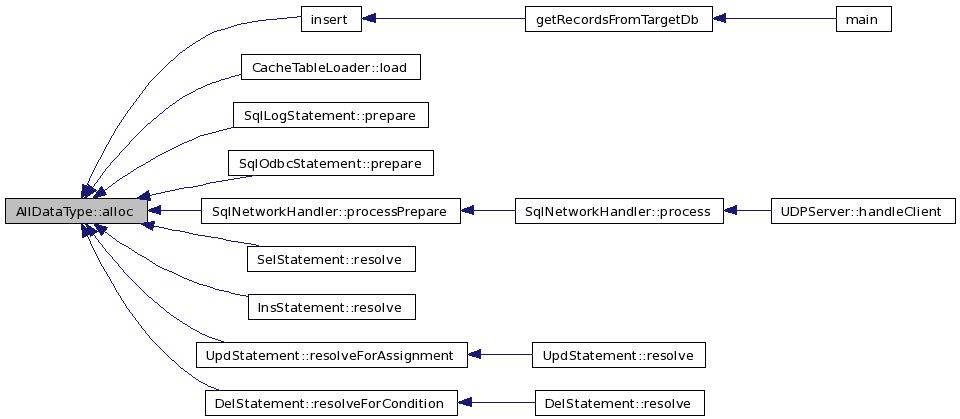













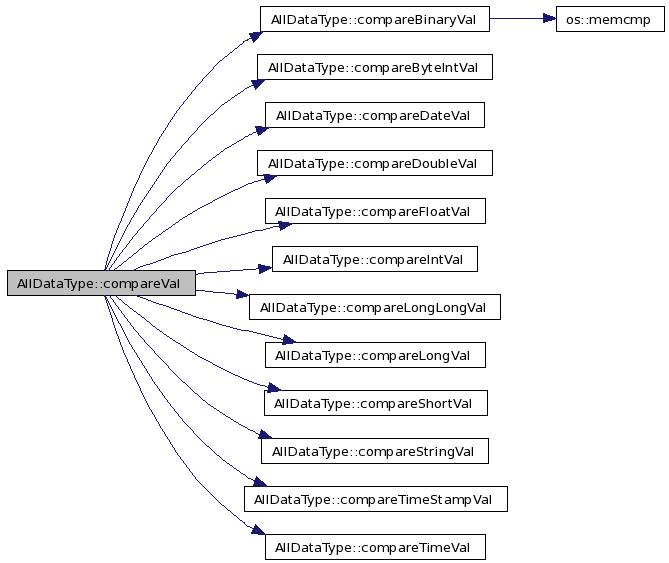

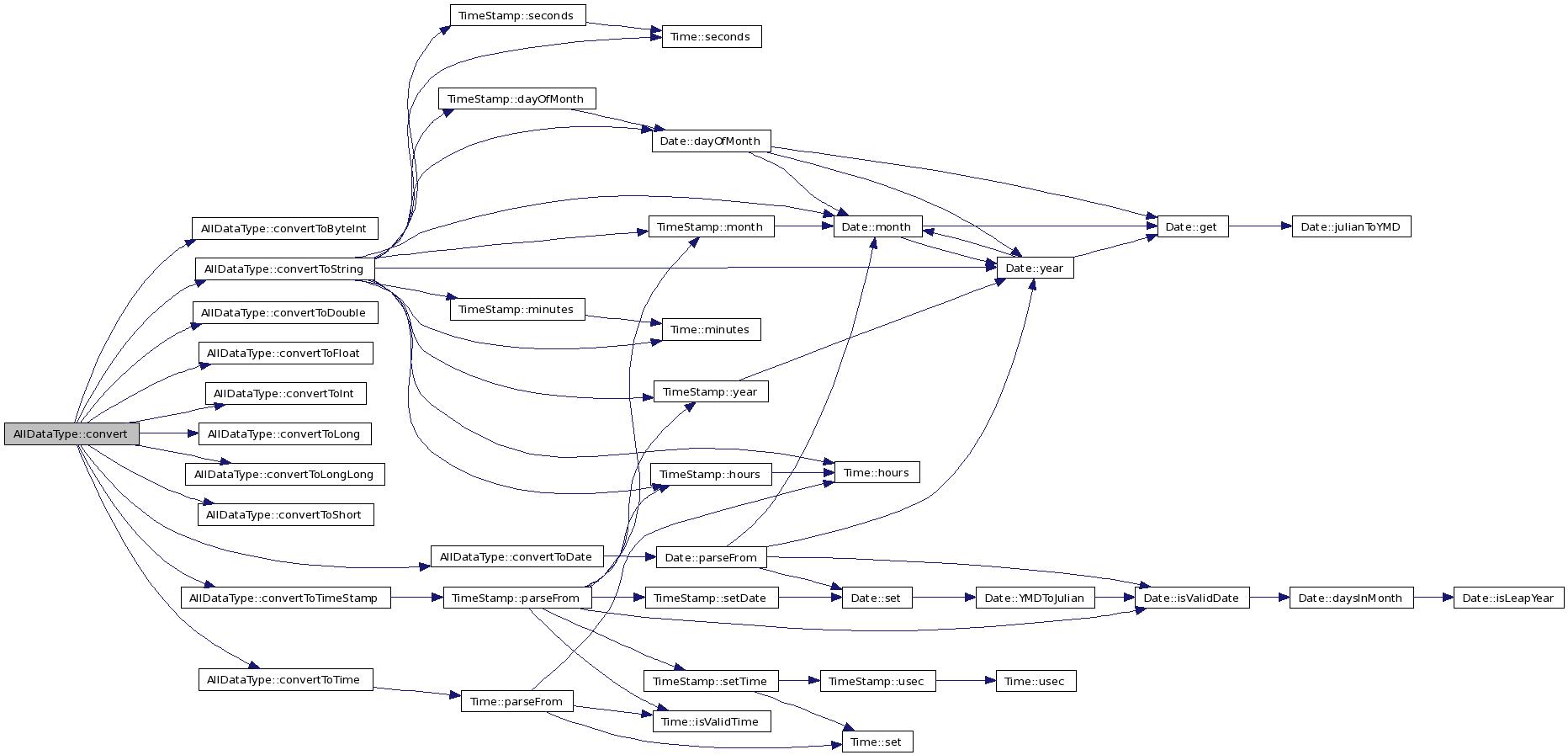












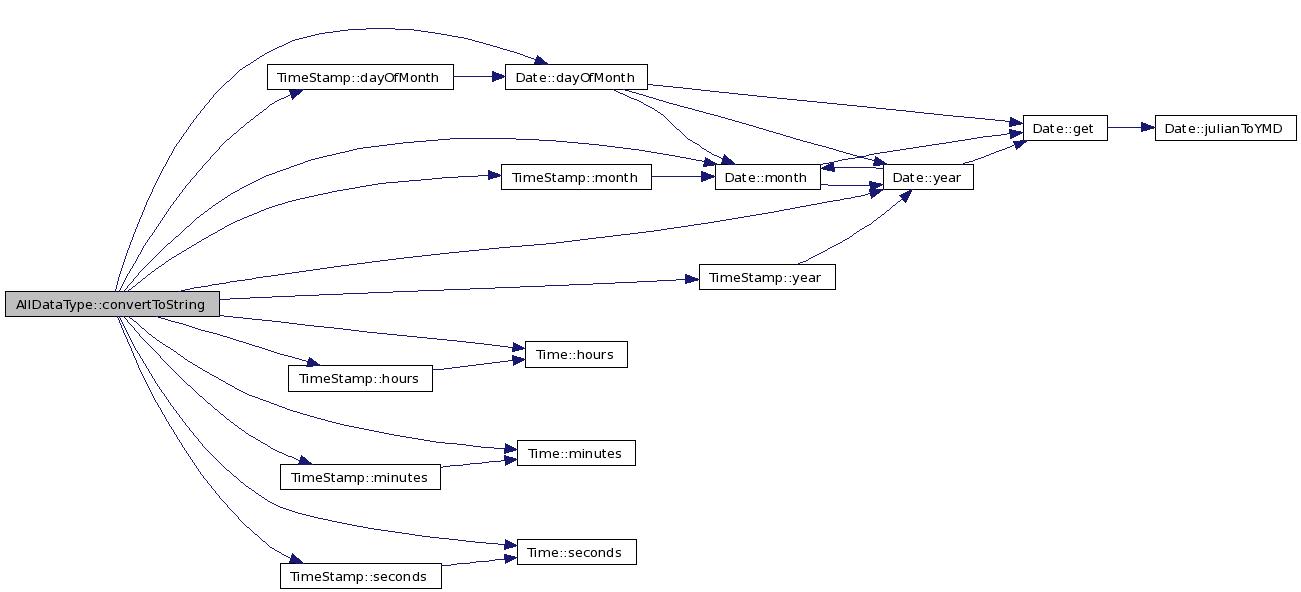
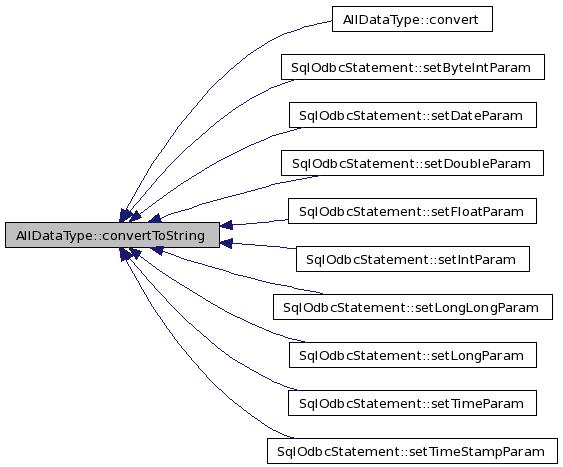





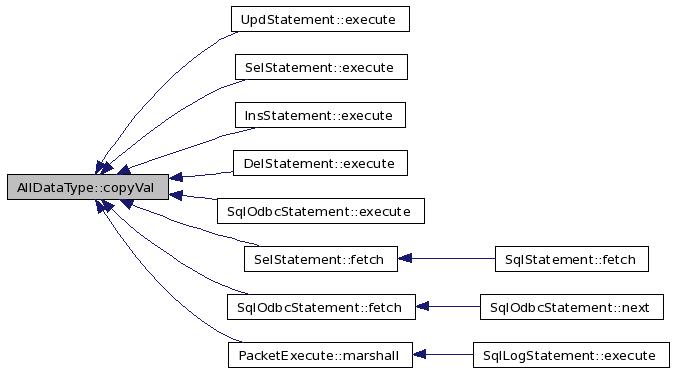


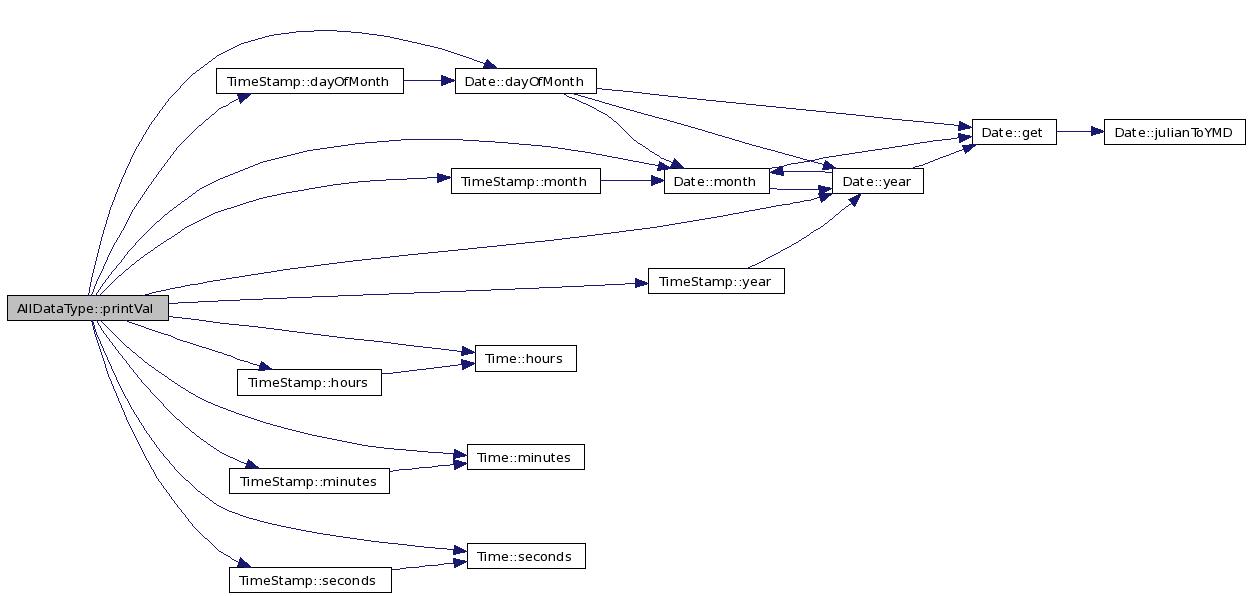



 1.4.7
1.4.7